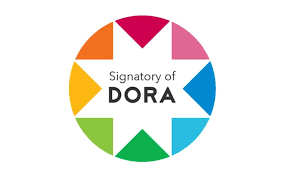Burnout syndrome: an institutional approach in a time of crisis. Work stress in teachers of public institution
Investigation article
Keywords:
Exhaustion, education, teachers, technology, crisisAbstract
The changes that are taking place at a global level are currently giving rise to a problem, problems that affect teaching work. For this reason, it was proposed in this research to apply emotional containment activities and virtual counseling to reduce stress in teachers. The study was carried out with teachers from the Fiscal Olmedo Educational Unit in the city of Portoviejo, Manabí Province, Ecuador. Where 130 teachers from different educational areas, aged between 28 and 59 years old, participated, who considered a survey based on the Burnout test to measure the job satisfaction scale, observing that a large percentage of teachers, a measure of the application of emotional restraint improved markedly, managing to combat that lack of motivation at the time of the crisis that occurs daily.
Keywords: Exhaustion; education; teachers; technology; crisis.
Downloads
References
Barba-Téllez, M. N., Guerrero-Ayala, M., & Ruiz-Lomas, D. M. (2015). Estrategia preventiva en Salud Mental para docentes con estrés laboral. Mikarimin. Revista Científica Multidisciplinaria, 1(2), 15-32.
Barraza, A., & Jaik, A. (2011). Estrés, Burnout y bienestar subjetivo. México: ReDIE.
Botello, M. S., Rodrigo, M. J., & Jara, Y. A. (2018). Creencias organizacionales, satisfacción laboral y síndrome burnout en docentes de Educación Superior. Opción: Revista de Ciencias Humanas y Sociales, (87), 183-212.
Bottiani, J. H., Duran, C. A., Pas, E. T., & Bradshaw, C. P. (2019). Teacher stress and burnout in urban middle schools: Associations with job demands, resources, and effective classroom practices. Journal of School Psychology, 77, 36-51. https://doi.org/10.1016/j.jsp.2019.10.002
Fernández, M. (2002). Desgaste psíquico (burnout) en profesores de educación primaria de Lima metropolitana. Lima: Pearson.
Fernández, P., & Díaz, P. (2002). Investigación cuantitativa y cualitativa. Unidad de Epidemiología Clínica y Bioestadística, 1-4.
Gómez-Perdomo, G. E., Meneses-Higuita, A. C., & Palacio-Montes, M. C. (2017). La satisfacción laboral y el capital psicológico: factores que influyen en el síndrome de burnout. Ansiedad y estrés, 23(2-3), 71-75. https://doi.org/10.1016/j.anyes.2017.09.002
Mineduc. (2020). Plan educativo: aprendamos juntos en casa. Quito: Ministerio de Educación Ecuador.
Obando-Mejía, I. A., Calero-Morales, S., Carpio-Orellana, P., & Fernández-Lorenzo, A. (2017). Efecto de las actividades físicas en la disminución del estrés laboral. Revista Cubana de Medicina General Integral, 33(3), 345-351.
Downloads
Published
How to Cite
Issue
Section
License
Copyright (c) 2021 Revista Científica Multidisciplinaria SAPIENTIAE. ISSN: 2600-6030.

This work is licensed under a Creative Commons Attribution-NonCommercial-ShareAlike 4.0 International License.


2.jpg)


















